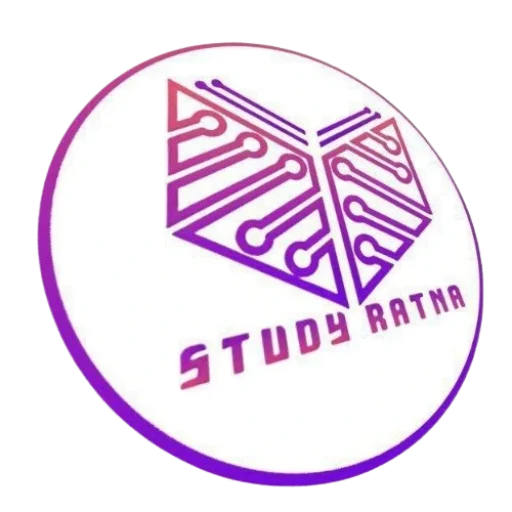The Joint Entrance Examination (JEE) is one of the most challenging competitive exams in India, requiring a well-structured study plan and disciplined preparation. With JEE 2025 approaching, aspirants must strategize their studies effectively to cover the vast syllabus and maximize their chances of success. This article provides a subject-wise study plan along with essential preparation tips to help you ace the exam.
General Study Strategy for JEE 2025
Before diving into the subject-wise plan, follow these general guidelines to ensure an efficient preparation strategy:
- Know the Syllabus – Understand the JEE syllabus for Physics, Chemistry, and Mathematics and focus on high-weightage topics.
- Set a Daily Schedule – Allocate 8-10 hours daily for JEE preparation, ensuring a balanced approach to all subjects.
- Use the Right Books – Apart from NCERTs, refer to HC Verma (Physics), MS Chouhan (Organic Chemistry), Irodov (Problems in Physics), and Cengage/Black Book (Mathematics).
- Practice PYQs & Mock Tests – Solve previous year questions (PYQs) and mock tests to understand exam patterns.
- Revise Regularly – Maintain short notes for quick revision before the exam.
Subject-Wise Study Plan
1. Physics 📘
Physics is a conceptual subject requiring strong fundamentals and problem-solving skills. Divide it into Mechanics, Electricity & Magnetism, Modern Physics, and Optics.
High-Weightage Topics:
✅ Mechanics (Newton’s Laws, Work, Energy & Power, Rotational Motion)
✅ Electrostatics & Current Electricity
✅ Magnetism & Electromagnetic Induction
✅ Optics (Ray & Wave Optics)
✅ Modern Physics (Photoelectric Effect, Bohr’s Atomic Model)
How to Study Physics Effectively?
- Start with concepts from HC Verma, then move to DC Pandey/Irodov for problem-solving.
- Solve PYQs from JEE Mains & Advanced.
- Practice numericals daily, focusing on tricky problems.
- Strengthen visualization skills using simulation apps or video lectures.
2. Chemistry 🧪
Chemistry is divided into Physical, Organic, and Inorganic Chemistry.
Physical Chemistry (Numerical Based)
✅ Mole Concept, Atomic Structure
✅ Thermodynamics, Chemical Equilibrium
✅ Electrochemistry, Chemical Kinetics
Organic Chemistry (Concept & Mechanisms)
✅ General Organic Chemistry (GOC)
✅ Hydrocarbons, Aldehydes & Ketones
✅ Named Reactions (Cannizzaro, Aldol, Sandmeyer)
Inorganic Chemistry (Memory-Based)
✅ Periodic Table Trends, Coordination Compounds
✅ Chemical Bonding, p-block & d-block elements
How to Study Chemistry Effectively?
- NCERT is the Bible for Inorganic Chemistry.
- For Organic Chemistry, revise mechanisms and practice reaction-based problems.
- Physical Chemistry requires formula-based problem-solving with conceptual clarity.
- Solve 30-40 questions per chapter and practice reaction mechanisms.
3. Mathematics 🧮
Mathematics requires strong conceptual understanding and practice. Focus on Algebra, Calculus, Coordinate Geometry, and Trigonometry.
High-Weightage Topics:
✅ Calculus (Limits, Continuity, Differentiability, Definite & Indefinite Integrals)
✅ Coordinate Geometry (Circles, Parabola, Ellipse, Hyperbola)
✅ Algebra (Complex Numbers, Matrices & Determinants, Permutations & Combinations)
✅ Vectors & 3D Geometry
✅ Probability & Binomial Theorem
How to Study Mathematics Effectively?
- Solve at least 50-60 questions per chapter.
- Understand derivations and learn shortcuts for quick calculations.
- Use high-quality books like Cengage, Arihant, or Black Book.
- Attempt mock tests to improve speed and accuracy.
Weekly Study Routine (Example)
| Day | Subject | Topics to Cover |
|---|---|---|
| Monday | Physics | Newton’s Laws, Work & Energy |
| Tuesday | Chemistry | Mole Concept, Thermodynamics |
| Wednesday | Maths | Algebra – Complex Numbers |
| Thursday | Physics | Electrostatics, Capacitors |
| Friday | Chemistry | Coordination Compounds |
| Saturday | Maths | Differential Calculus |
| Sunday | Full-Length Mock Test & Revision |
Last 3 Months Strategy (Revision Phase) 🔥
- Solve 2 mock tests per week and analyze mistakes.
- Revise formulas, reaction mechanisms, and key concepts.
- Focus on weak areas and common mistakes.
- Solve JEE Advanced-level questions for better problem-solving skills.
- Stay consistent, positive, and stress-free.
Final Tips to Crack JEE 2025 🏆
✔ Follow a disciplined routine and stay away from distractions.
✔ Focus on conceptual clarity rather than rote learning.
✔ Stay healthy, take breaks, and get proper sleep.
✔ Practice PYQs & mock tests religiously.
✔ Trust the process and believe in yourself.
With the right study plan and determination, you can achieve 99+ percentile in JEE 2025. 🚀 Stay focused, work smart, and keep pushing forward! All the best! 💯🔥



![100% Working PW MOD APK & Study Rays APK Download – [v1.5] Latest Version](https://studyratna.co/wp-content/uploads/2025/05/maxresdefault-1.jpg)




